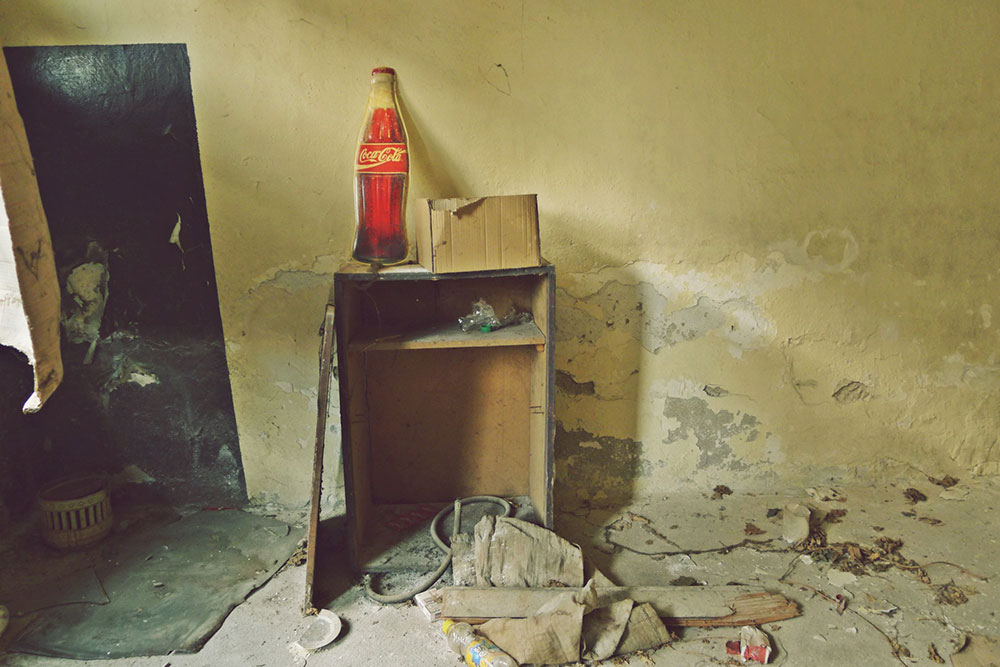
Now that the Oscars are over, leaving many around here disappointed that the film ‘Quo vadis, Aida?’ didn’t win, and many others thrilled with the same decision, it is worth pointing out the continuous clash with reality which is constantly being produced here and which is not likely to stop any time soon. First of all, Jasmila Zbanic made a good and distressing film about a horrible crime and the trauma that will haunt the memory of our societies and communities for a long time to come, while, at the same time, being strongly suppressed in the counter-memory. The statement that the film is good and distressing is not a matter of mine or any one person’s personal assessment, but the opinion of many critics who had the opportunity to watch it, as well as the jury of the American Academy that shortlisted it for this prestigious award. Thanks to this fact, the film gained worldwide visibility, it will certainly have a large audience, continue to win other awards, and be remembered as an important and relevant film. In other words, the author and producers made a miracle with virtually no institutional support, and that should be the only serious point we make when speaking about the film’s international resonance. There are, however, other points being made, and these are related to collective delusions, unrealistic expectations, and the resulting emotional states. Namely, there is an obvious deep-rooted belief that it is possible for a film, if it is globally successful enough, to write history, change international perception of a nation and country, and even influence a change in policy towards a certain territory. Despite the fact that film is a pop-cultural medium and that it can, if well made, make people who watched it think more deeply about a certain topic, the idea that it as a medium could make any of those three expectations true is just wrong. Therefore, any serious emotional investment in whether a film like this receives an award is meaningless, except on the part of someone who was directly involved in the process of making the film and expects an Oscar or some other award in recognition of their own work. A lot of articles were written about the artificially constructed competition between the films ‘Dara from Jasenovac’ and ‘Quo vadis, Aida?’ (even though it is obvious that the first film is simply bad, despite the maximum involvement of the state and the ruling elite, and the second one is simply better, although it was created as a practically unwanted project of a country with virtually no film industry). But even if the relative levels of quality had been different, if one of them had won an Oscar, or even if neither film was ever made, they would not have written history, nor could they, in any way, change local political circumstances or the attitude of international diplomacy towards this area. The Ustasha state undoubtedly committed genocide against Serbs, which culminated in Jasenovac, and no film can change or refute this fully documented and historically researched fact. Anyone who wants to learn about this can easily do so. Likewise, the genocide against Bosniaks in Srebrenica, as well as other brutal crimes throughout Bosnia and Herzegovina, have been thoroughly investigated and documented and are easily accessible to anyone interested. Especially to diplomats working with this part of the world.
But, when all is finally said and done, the fact remains that the biggest problem of our societies is that they are unable to leave the 90s behind, either because they continue to support criminal policies from that era, or because they expect something that will undo the horrors of war, and the crimes, and consequently bring about some different political resolution.
It’s hard to write this, but the project of confronting the past has failed. Moreover, the way it was conceived, it never stood a chance in the first place. And not because people and societies aren’t aware of everything that happened, so now history and art need to explain it. It failed precisely because everyone knows everything, but many still simply support the crimes and the nationalist ideologies that led to them. As it is quite clear that this will not change, no matter how many books and films about it are made, because everyone will continue to insist on their own culture of memory, completely insensitive to the memories of other people and communities, it is high time to acknowledge this simple fact and start something that Tito brilliantly defined as peaceful coexistence focused on topics related to present life. Expecting anything more than that is naive, counterproductive, and can only cause new negative emotions and tensions and further bury people in the horrible past, eliminating any prospect for normal life.
Translated by Marijana Simic
Peščanik.net, 29.04.2021.


